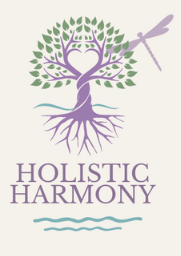5 Common Emotional Wounds That Run in Families (And How to Start Healing Them) 💔✨
Jun 11, 2025Hey there, beautiful soul 🌿
Let’s have a real talk—just you and me. Because if you're anything like me, you've probably caught yourself reacting to something small in a big way... and then wondering, “Where did that come from?” 🤯
Spoiler alert: it might not be all yours.
Yep, that emotional weight you’ve been carrying could be inherited. Passed down like a family recipe—except this one isn’t delicious or comforting. These are generational wounds. Invisible patterns that thread their way through families until someone brave enough decides to break the cycle. (Hi, that’s you. 🦋)
Let’s explore 5 of the most common emotional wounds that run in families—and how to begin the gentle, soul-level process of healing them.
1. Abandonment Wound 🕊️
This one’s deep. It often shows up when a parent was physically absent, emotionally unavailable, or inconsistent with love. But here’s the kicker—it doesn’t have to be extreme. Sometimes, even small moments of emotional disconnection can leave lasting scars.
How it shows up: Fear of being left. Clinginess in relationships. Over-apologizing. Constantly seeking validation.
Why it matters: This wound convinces you that love is unstable or that you’re not worth staying for. And that couldn’t be further from the truth.
2. Scarcity Wound 🥀
This one goes beyond money. It’s the belief that there’s never enough—enough time, attention, support, love, rest.
How it shows up: Hoarding. Overworking. Competition in relationships. Fear of asking for help. Anxiety around rest or slowing down.
Why it matters: Scarcity rewires your nervous system to live in a state of constant survival. But you were born for more than just survival. You were born to thrive.
3. Perfectionism Wound 🧠💡
If you grew up feeling like love or praise had to be earned—through achievement, appearance, or behavior—you might have inherited this sneaky wound.
How it shows up: Overachieving. People-pleasing. Fear of failure. Harsh inner dialogue. Burnout disguised as ambition.
Why it matters: Perfectionism tells you that who you are isn’t enough—only what you do. But you’re worthy, just as you are, in all your messy, miraculous humanness.
4. Emotional Repression Wound 😶🌫️
In many families, emotions are either brushed under the rug or weaponized. If you were taught to “toughen up” or “stop being so sensitive,” you might carry this one.
How it shows up: Shutting down. Numbing. Struggling to express needs. Feeling guilty for having big feelings.
Why it matters: Repressed emotions don’t disappear. They get stored—often in the body. Until we give them space to be seen, they can manifest as anxiety, depression, or chronic tension.
5. Control & Codependency Wound 🔄
Born from instability or chaos, this wound creates a false sense of safety through control. It’s the voice that says, “If I can just keep everything and everyone ‘okay,’ then I’ll be okay.”
How it shows up: Controlling tendencies. Trouble letting go. Over-responsibility for others. Feeling drained in relationships.
Why it matters: Control is a trauma response masquerading as safety. True safety is built through boundaries, self-trust, and surrender—not micromanaging every outcome.
Let’s Reflect 💭
Healing generational wounds doesn’t happen overnight. It happens one moment of awareness at a time. One brave choice. One boundary. One breath. You don’t have to fix it all today. You just have to see it—and decide that it ends with you.
✍️ Journaling Prompt:
“Which of these emotional wounds feels most familiar to me—and how might it have shaped the way I see myself, others, or the world?”
Pause. Breathe. Write. Let what comes up be enough.
And remember: you are not broken. You are breaking cycles.
With you on this journey,
🌸 In harmony and healing,
Amanda

